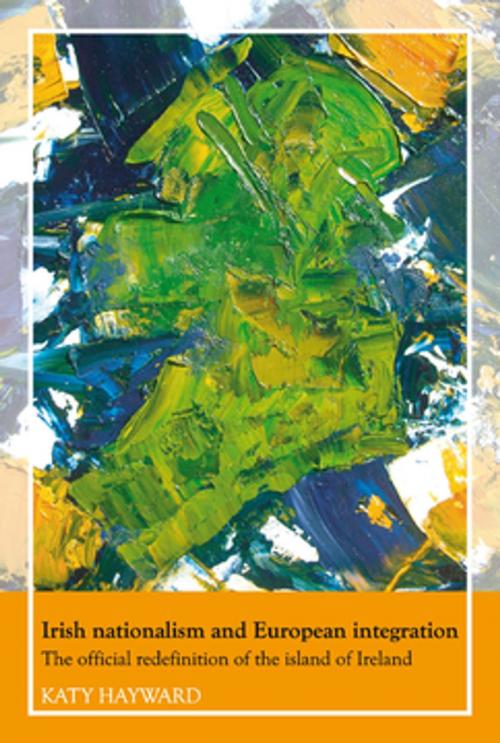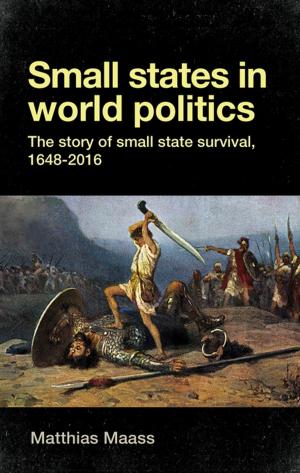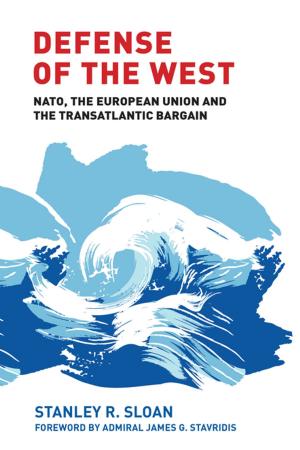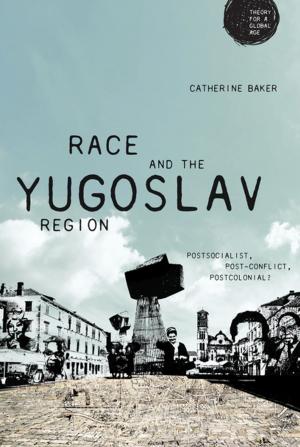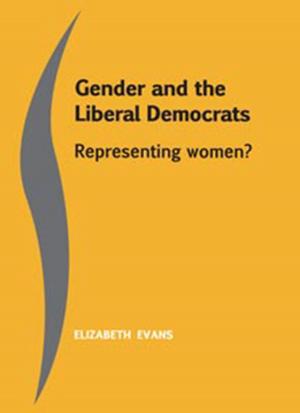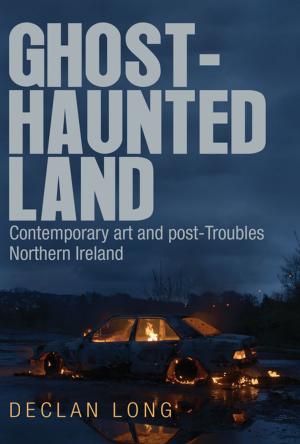Irish nationalism and European integration
The official redefinition of the island of Ireland
Nonfiction, Entertainment, Film, History & Criticism, Performing Arts, Social & Cultural Studies, Political Science| Author: | Katy Hayward | ISBN: | 9781847796431 |
| Publisher: | Manchester University Press | Publication: | July 19, 2013 |
| Imprint: | Manchester University Press | Language: | English |
| Author: | Katy Hayward |
| ISBN: | 9781847796431 |
| Publisher: | Manchester University Press |
| Publication: | July 19, 2013 |
| Imprint: | Manchester University Press |
| Language: | English |
How has it been possible for Irish political leaders to actively promote two of the largest challenges to Irish nation-statehood: the concession of sovereignty to the European Union and the retraction of the constitutional claim over Northern Ireland? The author of this book argues that such discourses are integrally connected and, what is more, embody the enduring relevance of nationalism in modern Ireland.
As the most comprehensive study to date of official discourse in twentieth-century Ireland, this book traces the ways in which nationalism can be simultaneously redefined and revitalised through European integration. The text begins with an overview of the origins and development of Irish official nationalism. It then analyses the redefinition of this nationalism in meeting the challenges to Irish nation-statehood posed by the conflict in Northern Ireland and membership of the EU.
New interpretations of the symbolic and practical importance of the island of Ireland have been central to this process. Indeed, the genius of the Irish was to employ innovative EU-inspired concepts in finding agreement with and within Northern Ireland on the one hand whilst, on the other, legitimising further European integration through the notion that it furthers traditional nationalist ideals such as Irish unity. Thus, Irish political leaders were remarkably successful in not only accommodating potent nationalist and pro-European discourses but in making them appear complementary.
An over-reliance on this discourse, however, plus a critical failure to adjust it to the conditions it helped to fashion, contributed to the failure of the ‘Yes’ campaigns in the Irish referendums on the EU Treaties of Nice and Lisbon. The book concludes with an assessment of the reasons for these results and argues that the symbiotic relationship between Irish nationalism and European integration can be redeemed for a new era in EU–member-state relations.
This book will appeal to any reader with an interest in the changing dynamics of Ireland’s relationship with the European Union and with Northern Ireland, as well as scholars of discourses on identity, territory and governance in Europe.
How has it been possible for Irish political leaders to actively promote two of the largest challenges to Irish nation-statehood: the concession of sovereignty to the European Union and the retraction of the constitutional claim over Northern Ireland? The author of this book argues that such discourses are integrally connected and, what is more, embody the enduring relevance of nationalism in modern Ireland.
As the most comprehensive study to date of official discourse in twentieth-century Ireland, this book traces the ways in which nationalism can be simultaneously redefined and revitalised through European integration. The text begins with an overview of the origins and development of Irish official nationalism. It then analyses the redefinition of this nationalism in meeting the challenges to Irish nation-statehood posed by the conflict in Northern Ireland and membership of the EU.
New interpretations of the symbolic and practical importance of the island of Ireland have been central to this process. Indeed, the genius of the Irish was to employ innovative EU-inspired concepts in finding agreement with and within Northern Ireland on the one hand whilst, on the other, legitimising further European integration through the notion that it furthers traditional nationalist ideals such as Irish unity. Thus, Irish political leaders were remarkably successful in not only accommodating potent nationalist and pro-European discourses but in making them appear complementary.
An over-reliance on this discourse, however, plus a critical failure to adjust it to the conditions it helped to fashion, contributed to the failure of the ‘Yes’ campaigns in the Irish referendums on the EU Treaties of Nice and Lisbon. The book concludes with an assessment of the reasons for these results and argues that the symbiotic relationship between Irish nationalism and European integration can be redeemed for a new era in EU–member-state relations.
This book will appeal to any reader with an interest in the changing dynamics of Ireland’s relationship with the European Union and with Northern Ireland, as well as scholars of discourses on identity, territory and governance in Europe.
